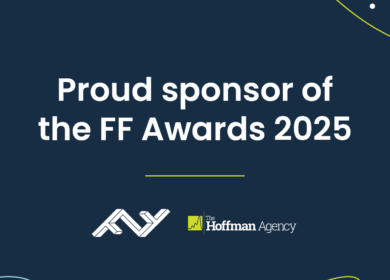By Giuseppina Chiaramonte
The Hoffman Agency, San Jose
Let me preface this by saying, I never studied PR.
Though I entered college as a communications major, ultimately I chose “Romanticism” and “Non-fiction Writing” over “Intro to Comms.”
However, I’ve often wondered about studying PR.
The Internet and social media have transformed the way we consume information and have made it a lot more difficult to create stories that stick.
So how do you teach this? How do you prepare students for an industry that requires you to constantly think on your toes and make use of the tools that are available right now?
We caught up with Burghardt Tenderich, associate professor at the University of Southern California’s Annenberg School for Communication and associate director of its Strategic Communication and Public Relations Center, for some insight.
Here’s what he had to say:

HA: So Prof. Tenderich, what would you say are the top benefits to pursuing a degree in communications versus pursuing a degree in another subject and then just learning about comms “out in the field”?
Tenderich: Both are viable options. The advantage of pursuing a degree in public relations or communications is that you’re better equipped to practice at a higher level and therefore have more impact within the organization.
In the USC Annenberg PR program, the guiding methodology is something we call the Strategic Planning Model. As the name implies, the methodology is centered on the notion of strategy that is research-based and forms the nucleus for campaigns that are natively designed to support business goals or organizational goals.
HA: That’s a good point – strategy is essential to creating impactful PR campaigns.
Tenderich: There are other reasons why a degree in PR/comms is beneficial, and one area I’d like to highlight is the study of ethics. Every day PR practitioners are challenged with ethical dilemmas, where they have to make their own decision on what is the right course of action. What do they base their decisions on? At USC Annenberg we teach mandatory ethics courses where PR students learn how to apply ethical reasoning models to day-to-day situations they’ll be facing as professionals.
HA: Let’s take a quick look at the industry. Public relations is changing so fast that it’s sometimes hard for PR professionals – and even agencies – to keep up. How do you keep your curriculum fresh and relevant to the changes that are taking place?
Tenderich: There are two important components: one, you change your curriculum constantly. At USC Annenberg, we formally review both the undergraduate and the graduate curriculum every few years, but instructors are strongly encouraged to evolve their teaching materials on an ongoing basis. Second, it is important that the curriculum is not centered on skills classes – how to build a Twitter campaign or a Facebook page – but instead teaches conceptual and innovative thinking. This will enable practitioners to continuously evolve.
HA: If it’s not a specific skill set, what would you say is the one thing you want students to take away from your courses – the one thing that will help them succeed in the workforce?
Tenderich: Critical thinking – the ability to connect the dots; thinking and reflecting before believing. Nothing is more important in communications. Unfortunately, critical thinking is not widely practiced, as many PR practitioners, journalists and politicians remind us every single day.
Catch us next week as we speak to Charles Byers, Professor of Business and Marketing at Santa Clara University for his insights on creating an impactful communications curriculum.

